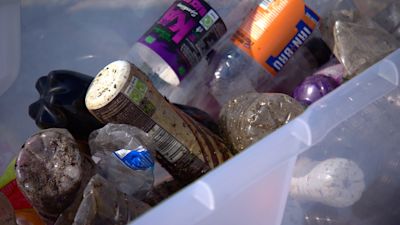New survey to count tonnes of plastic waste in River Mersey's network of waterways

The amount of plastic waste in the River Mersey's huge network of waterways is to be catalogued in an attempt to highlight the scale of the problem and change people's behaviour.
Two major rivers trusts are joining forces to work with communities, researchers, and businesses in the plastics supply and waste management chain to identify types of plastic litter in the Mersey catchment.
The Plastic Free Mersey project will be led by the Mersey Rivers Trust and Thames21 and will build on the London charity’s award-winning litter survey work.
Each year, 900 Mersey River Trust volunteers collect roughly 1,000 bin bags of litter (weighing around five tonnes in total), much of it plastic.
During the two-year project, trained volunteers will work as citizen scientists to sort, count and quantify plastic items they find at litter hotspots across the network of waterways, flowing from the Pennines to Liverpool Bay.
The litter will be safely removed and disposed of correctly.
By collecting data and information on plastic and other litter and on people’s habits, the project will tackle how society uses and disposes of plastic.
Organisers say it will shape behaviour change to keep litter out of waterways and reduce its impact on the natural environment.
The charities will be working with a number of plastic, chemical and waste firms which have sites in the River Mersey catchment. The project also has the support of the British Plastics Federation and PlasticsEurope.
It is hoped the project could lead to similar organisations working together in other river catchments in the UK and abroad.
The most common types of light plastic litter identified by Thames21’s latest statistics on the Tidal Thames are:
plastic food wrappers: 20%
cotton bud sticks: 16%
plastic drinks bottles or lids: 11%
plastic cups: 4%
The project will identify if similar statistics apply to the River Mersey’s waterways or if there is a different mix of plastic litter types.